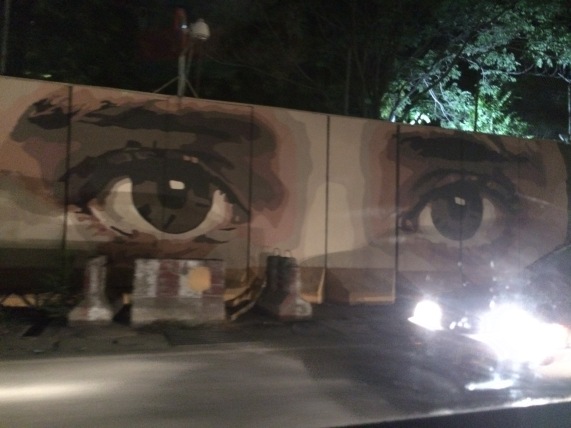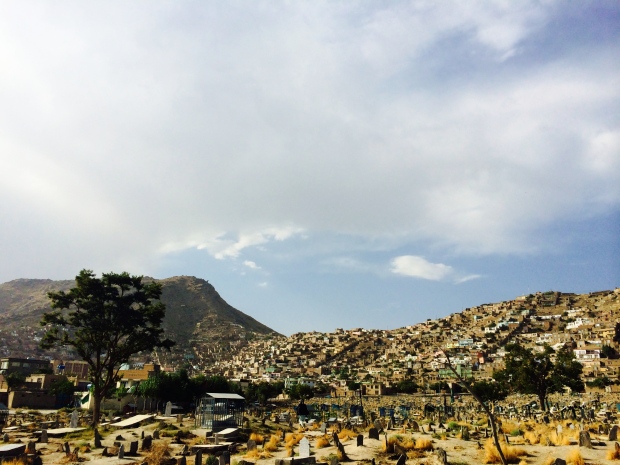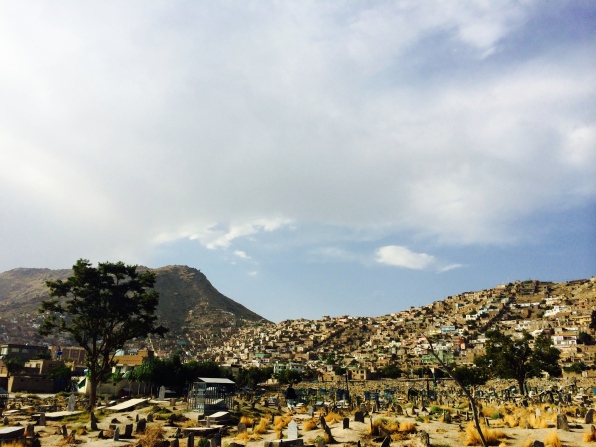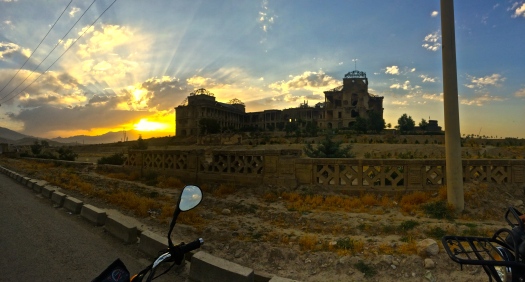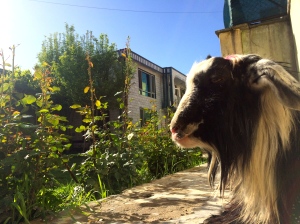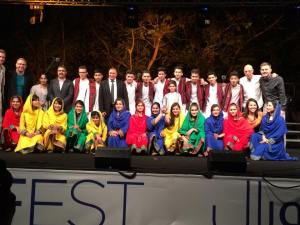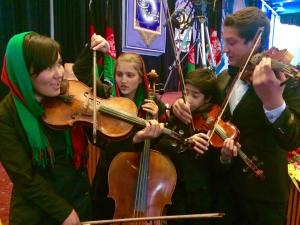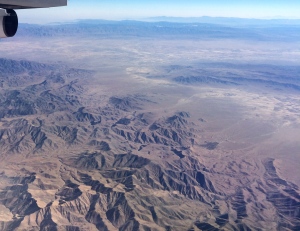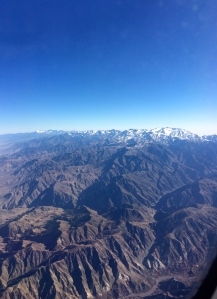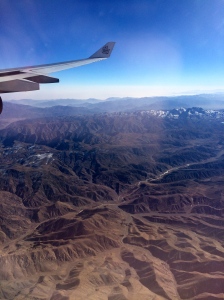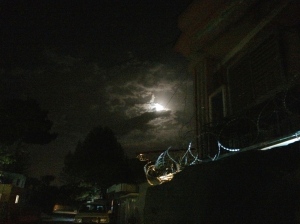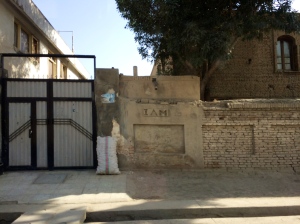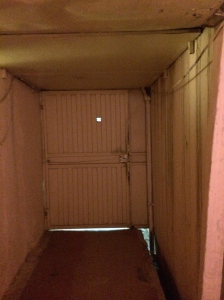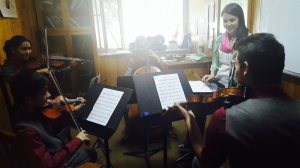I just came back from a much needed break home in Hong Kong after my first year in Afghanistan. I spent the first week home feeling awful and sick and stressed out and lost and traumatised. I woke up in a panic one night after a vivid dream about a rocket (though truth be told, the only trouble I ever have sleeping in Kabul is due, in large part, to the 5am ice cream man, the bleating neighborhood sheep, and my next door neighbor, Elyas, who is the loudest and earliest rising child in the world). I cried in the shower, and spent one evening violently sick, despite having eaten the exact same thing as my friend, who was completely fine. After all the puking, I slept from about 2:00am Sunday until 9:00am Monday, with a brief break for a drowsy church service. When I awoke, after my nearly 30 hour nap, I felt… normal. I felt like I was ready to tackle my work, and able to answer the bevvy of questions about life in Afghanistan that showered down since my arrival.
So, now that I am able to articulate myself without crumbling into a quivering mess, I can reflect on what I have learned, and how my life has changed in the last 365+ days of living in the Big Kebab. In a nutshell, Afghanistan is the land of Unclear Expectations, and I am slowly learning to let it go (cue Elsa), whatever it happens to be (control, expectations, freedom, assumptions, etc etc etc).
A Type A Person in a Type I(nshallah) Environment:
Afghanistan is a difficult place to be Type A. Upon first arrival to Kabul, Type A people like myself receive a crash course on being patient and forgoing that pesky sense of needing to be in control of everything. In Afghanistan, you are in control of nothing; nothing but your own emotions and how you react to things. After nine years of running a successful business in the logical and organized mecca of efficiency that is Hong Kong, coming to a place like Kabul was a shock to my color-coordinated-excel-spread-sheet brain. Not only was I no longer the boss, I was no longer the boss in a country where steering wheels can be found on either side of the car, food comes wrapped in British newspapers from 2010, normal wait-time for a meeting or event can range anywhere from “someone-important-is-here-right-now-drop-everything-and-perform,” to “better-hope-your-phone-is-fully-charged-because-it-is-12pm-and-the-10am-speaker-is-still-on-his-way.” Nothing works the way it is supposed to. Internet (aka inshallah-net) exists, but in a 56k modem sort of way, and 3G is more like 1.5G. Even public holidays are only announced a day or two before they happen- how can you be Type A in a place like this? You have to adapt to the disorder, and adapt quickly. Although sometimes I fear that living here is making me disorganized and lazy, being in this environment is actually extremely liberating. It is a wonderful reminder to me that God, not I, is in control of everything. I don’t understand His plan for things here, and that’s ok. Life is more than efficiency and targets, life is about relationships and interactions. Endless waiting for meetings and airplanes allows for conversations. Snail-like internet (sort of) eliminates the mindless trolling through Buzzfeed and Reddit that occupies so much of my taxi/bus/transit time in Hong Kong (Facebook usage, however, remains at an all-time high. More on that later). Uncertainty about tomorrow breeds more of a sense of appreciation for today, and for the people with whom you spend your today.
Unclear Expectations and Misplaced Priority
When you open an article about Afghanistan and read Kabul City Rocked by Explosion, you expect that there are bombs raining down from the sky, buildings crumbling, soldiers patrolling the streets, while terrified women in burqas scurry into the nearest doorway to avoid flying shrapnel and concrete. You expect bread lines and sad eyes and amputees. You expect those of us that live here to be cowering in a state of constant fear. This, however, is not true, not entirely. Yes, Afghanistan is still an active conflict zone. But the conflict is a tired, furtive (thank you, Emma-jaan, for the word that perfectly encapsulates this feeling) one. We do not drive down the street dodging bullets; rather, we wake up wondering if there might be a suicide bombing somewhere in the city that day. There usually is not. It is not a constant gun battle that affects us here, it is the uncertainty of what *may * happen that breeds hypersensitivity and anxiety. It is the uncertainty of what could transpire that brings out the superlatives in us- extreme joy, extreme anger, extreme sadness. We are surrounded by these extremes; people are not just hungry, they are starving. People are not just happy, they are elated. Losses are catastrophic, successes are national celebrations. The ANA soldier who fought off six Taliban rose to celebrity status overnight, being awarded a car, a house, and no doubt countless marriage offers, and his subsequent fall from grace was just as rapid and dramatic. After just a few days, he is now in jail, disgraced, following a deadly traffic accident.
These extremes and uncertainties result in what I can only describe as an intense disparity of priority. There is a misplaced sense of gravity and import on things like Facebook posts and car decorations or what color a woman is wearing in public, whereas things that I would consider to be deserving of care and attention, like sanitation and security measures, might carry the same weight as, say, the choice between qabeli pilau or kebab for lunch. Idly written words have the power to not just damage feelings and friendships, they can also ruin lives. For most young people in Afghanistan, the majority of communication, particularly between the sexes, occurs via text message or Facebook. You can therefore understand why the things that are typed are far more significant than they would be anywhere else.
New Understandings of Danger and Safety
People living in safety and freedom cannot truly understand what “dangerous” and “safe” actually mean, and once I moved out here, my perception of these concepts changed dramatically. Basically, I do not know how to really answer the most often asked question: “Are you safe?” I am not safe in the way that YOU are safe, but again, the chances of the Taliban blowing up my house are very slim. We severely limit our movements, ie we don’t really go anywhere. Anything bad that could happen would probably happen on the road, so we do not spend much time in transit- and certainly we would not walk anywhere. There is no circumstance under which I would be walking to a restaurant or bar at night (mainly because there… are none…), providing the opportunity to be mugged or raped, so these sorts of dangers rarely even cross my mind. So I guess the best way to answer the “Are you safe” question is to say that I am extremely restricted in what I can do, but because of those restrictions, I am safe.
Afghanistan is part of the current world-wide refugee crisis. There are thousands of passport applications every day here, from people desperate to leave the country, by any means necessary. Unemployment at nearly 60%, the withdrawal of coalition force troops, unrest within the Taliban, following the confirmation of Mullah Omar’s death, and the growing threat of ISIS, have all pushed the country into deeper uncertainty. Most Afghans do not have the luxury of being able to leave at any time, as I do, and are affected by the instability in ways that I cannot even imagine. Their lives are in a different kind of danger; the danger of a hopeless future, a future that could contain a continuation of the last 35 years of conflict. This is, in a nutshell, what we are all fighting to prevent. Yes, I teach music; however, the primary goal is to provide a stable and promising future, using music as the vehicle. This is how to ensure safety for my students.
Most often asked questions:
What do you do in your free time?
- There are a few restaurants (and by a few I mean like… 5) that are ok for foreigners. We also go to friends’ places, and the embassies and NGO compounds throw parties. There is one awesome NGO called PARSA, who have a weekly Friday brunch on their expansive, farm-animal-filled property, and this is an essential factor in my mental well-being.
- We watch a lot of downloaded TV series. I recently brought back an old projector from Hong Kong- this will serve us well in the winter, when it is too cold to go anywhere.
- There are, in fact, many beautiful and interesting places in the city. The problem is that security is not good, so we have to limit our movements. During a safer time, I was able to ride with a friend to several shrines, forts, and hilltops around the city for some urban exploration. Right now, however, this is just unfortunately not an option.
- Facebook. Lots and lots of Facebook. Ugh.
What is the food like?
- The great thing about Afghan food is that everything is fresh, and without preservatives or chemicals of any kind. Despite the fact that I come from the land of All The Foods, I actually now feel healthier eating in Kabul. (also, as one of my housemates is diabetic, we have cut out oil and sugar from our diets, which is very helpful). The main problem is not that it is not tasty, but that there is not a lot of variety. There does not seem to be any clearcut distinction between breakfast, lunch, and dinner foods, so there is a lot of kebab consumption. The main foods here are:
- Naan: a stupidly delicious bread that is consumed with every meal, and is like manna from heaven. Unfortunately, in addition to being insanely delicious, it is full of pesky things like calories, and therefore do nothing for someone watching their figure, which is nobody, because everyone here is hungry.
- Ghosh: meat (lamb, beef, goat, chicken). Lots and lots of meat.
- Oil: everything here is drowning in oil. I love banjaan sia (eggplant), but whenever I get it, it is basically a pool of oil with something that once resembled a vegetable resting limply at the bottom.
- Kebab: grilled meat doused in spices, inside a naan, accompanied by a hot pepper, roasted tomato, and a few french fries. Kebab can be very delicious, but for breakfast? And again at lunch? And again for dinner? Yikes.
- Qabeli pilau: rice made with oil, carrots, raisins, and a hunk of mysterious meat in the middle. Same with the kebab, can be very delicious, but not three times a day.
- Mantoo/Ashaak: much like naan, this is food sent from heaven. It is the Afghan equivalent of xiao long bao, but without the soup inside. The meat is spiced ground lamb, and on top of the dumplings is a delicious tangy yogurt sauce, lentils, and coriander. Ashaak are kind of the vegetarian version of mantoo, made with something green on the inside, and not nearly as delicious. I could eat 30 mantoo in one sitting and be very happy. Fat. Happy.
- Legumes: lubia (Afghan equivalent of… chili? Without the meat? So just the gross kidney beans?), nakhut (misspelled, chick peas in some sort of sauce), dahl (lentils, so good), and various combinations of the aforementioned, with other similar legumy bean things.
- Juices: here is where Afghanistan cannot be beaten—mango juice, pomegranate juice, banana juice etc etc etc. All of these seem to be made with the secret ingredient of the nectar of the gods.
- That’s pretty much it.
How do you get around?
- We have a vehicle from the Ministry of Education (when they have enough money to pay for gas, which is… infrequently) that brings us to and from work, and to the grocery store if security is ok. There are also expat taxi services that we can call if we want to go anywhere else.
- I also have a motorcycle that I no longer ride, as the security situation is not good right now, and there is no need to put my life in further danger.
What do you wear?
- I can wear pretty much the same things as I did in Hong Kong, except that I have to wear them all at the same time. So I can wear a nice dress, but with pants underneath, and a cardigan on top, or “arm socks” to cover my sinful wrists. Chador (headscarf) at all times outside my house.
- Arms and legs must be covered at all times (outside my home), and my shirt/skirt/dress should reach to the knees (or close). Clothing should never be tight, and we should not show the shape of our bodies.
- I do not wear a burqa.
